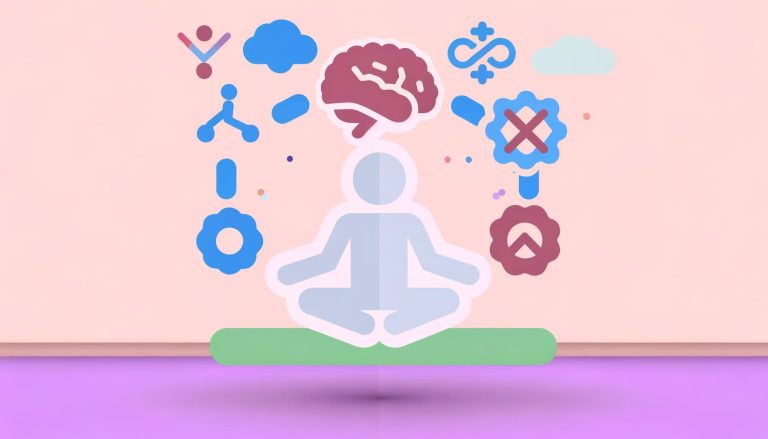Gratitude is more than just a fleeting feeling of thankfulness. It’s a powerful practice that can transform your outlook on life, improve your health, and foster stronger relationships. In this article, we’ll delve into the profound benefits of gratitude, offer practical tips for cultivating a grateful mindset, and explore the science behind this transformative emotion. Whether you’re already practicing gratitude or are curious to start, you’ll find valuable insights to enrich your life.
The Benefits of Gratitude
Gratitude has far-reaching effects on various aspects of life, from mental health to physical well-being. Let’s explore some of these incredible benefits.
Mental Health Benefits
Practicing gratitude can greatly enhance mental health. Studies show that people who regularly express gratitude experience fewer symptoms of depression and anxiety. Gratitude encourages a focus on positive aspects, reducing negative thinking patterns. It improves overall emotional resilience and contributes to a more optimistic outlook.
Physical Health Benefits
Gratitude isn’t just a state of mind; it has tangible effects on the body. Research indicates that grateful people experience fewer aches and pains. Regular gratitude practice is linked to better sleep quality and can even lower blood pressure. Essentially, when you’re in a state of gratitude, your stress levels reduce, which benefits your cardiovascular health.
Social Benefits
Gratitude fosters better relationships. Expressing gratitude can make you more approachable and compassionate, improving your social interactions. People who practice gratitude are often seen as more trustworthy and kind, thereby attracting positive social exchanges and deepening existing relationships.
Practical Tips for Cultivating Gratitude
The advantages of gratitude are clear, but how do we effectively incorporate it into our daily lives? Here are some practical tips to help you build and maintain a grateful mindset.
Keep a Gratitude Journal
One of the most effective ways to cultivate gratitude is by maintaining a gratitude journal. Each day, write down three things you’re grateful for. They don’t have to be grand or significant; even the small joys of life, such as a good cup of coffee or a beautiful sunset, count. Over time, this practice helps you continually focus on the positive aspects of life.
Practice Mindfulness
Mindfulness is a valuable tool for fostering gratitude. When practicing mindfulness, you bring your attention to the present moment, fully experiencing it without judgment. This heightened awareness makes it easier to notice and appreciate the positive things in your life that you might otherwise overlook.
Express Your Gratitude
Don’t keep your feelings of gratitude to yourself. Share them! Tell people why you’re grateful for them or what specific actions of theirs you appreciate. Expressing gratitude strengthens relationships and can have a profound impact on both you and the recipient.
Use Visual Reminders
Surround yourself with visual reminders of gratitude. This could be sticky notes with affirmations and positive messages or pictures that remind you of happy moments and loved ones. These visual cues can serve as consistent reminders to appreciate the good in your life.
Gratitude Meditation
Incorporate gratitude into your meditation practice. Spend a few minutes each day meditating on things you are thankful for. Close your eyes, take deep breaths, and visualize the people, experiences, or things that bring you joy. This practice can help cement a grateful mindset.
The Science of Gratitude
The impact of gratitude is not just anecdotal; science has thoroughly backed its benefits through various studies.
Neuroscientific Perspective
Neuroscience reveals that gratitude can activate the brain’s reward system, releasing dopamine and serotonin – the neurotransmitters responsible for happiness. When we practice gratitude, our brain sends signals that contribute to emotional well-being and resilience. Over time, the brain can rewire itself to naturally foster more positive thoughts and emotions.
Psychological Studies
Numerous psychological studies support the benefits of gratitude. For example, a study published in the journal Psychological Science found that participants who maintained a gratitude journal for ten weeks were more optimistic and felt better about their lives. They also exercised more and had fewer visits to the doctor than those who focused on sources of aggravation.
“Gratitude turns what we have into enough.”
The Gratitude Feedback Effect
The more you practice gratitude, the more you notice things to be grateful for, creating a positive feedback loop. This is known as the gratitude feedback effect. As you continue to reflect on the good in your life, your brain becomes more adept at recognizing and appreciating positive experiences, thus enhancing your overall sense of well-being.
Conclusion
Gratitude is a powerful force that can significantly improve your mental, physical, and social well-being. By incorporating simple practices like maintaining a gratitude journal, practicing mindfulness, and expressing your appreciation to others, you can cultivate a grateful mindset that enriches your life. The science supports it, and the benefits are clear — gratitude has the potential to transform your outlook and improve your overall quality of life. So start your gratitude journey today and discover the profound impact it can have on your well-being.


